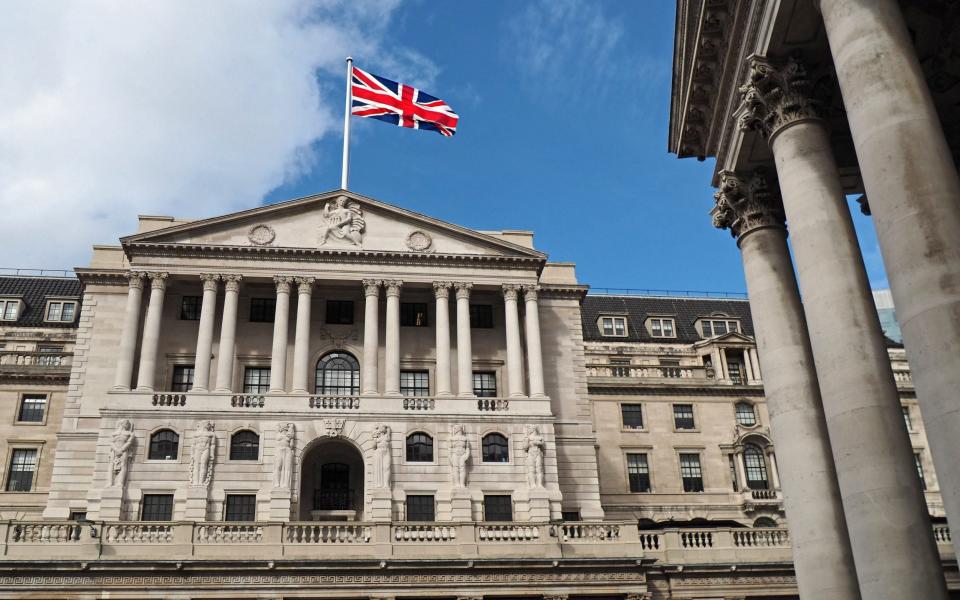‘Tax rises inevitable’ after Bank of England money-printing losses

Tax rises are inevitable under the next government because of heavy losses created by the Bank of England’s money printing scheme, Goldman Sachs has warned.
Higher borrowing costs are adding to the strain on Britain’s public finances which will force the next chancellor to raise taxes even further, James Moberly, an economist at the investment bank, said.
Mr Moberly warned increased levies will be needed in part because of the scale of losses on the Bank of England’s quantitative easing (QE) programme known as the Asset Purchase Facility (APF).
He said: “With both major parties committed to getting debt falling as a share of output five years ahead, the next government will need to pencil in a sizeable consolidation to meet its fiscal target.
“The historical evidence suggests that the next government may well change the current plan for how to implement the consolidation, with both taxes and spending likely to be higher. In the past three decades, new governments of all stripes have tended to raise taxes after elections.”
The Bank of England created money through the QE programme in the financial crisis, and again in the pandemic, to buy bonds, in an effort to ease strains in markets and to reduce borrowing costs for businesses and households. It ultimately bought £875bn of government bonds, known as gilts.
When interest rates were low, this was profitable as the Bank effectively borrowed at the base rate to buy bonds which paid a higher income.
But now interest rates are higher, with the base rate at 5.25pc, it is losing money. On top of that it is selling bonds under the process of quantitative tightening (QT). Higher interest rates mean lower bond prices, so the Bank is recording losses on those sales.
This is a problem for the Government because successive chancellors, from Alastair Darling to Rishi Sunak, promised to cover any losses on the scheme. Last year Jeremy Hunt sent £44bn to the Bank.
Mr Moberly’s comments come as the Labour and Conservative parties have ruled out increasing the headline rates of major levies.
Mr Moberly said: “The two major parties have hemmed themselves in on this front; both have ruled out raising income tax, National Insurance, or VAT. It could be that the next government finds ways to increase the tax burden in a way that does not contravene pre-election pledges.
“Thresholds could be frozen or exemptions reviewed as an alternative to raising tax rates. Nonetheless, these pledges will make the task of increasing revenues more difficult from a political perspective.”
Nigel Farage, leader of Reform UK, has proposed slashing payments from the Bank of England to commercial banks as a way to stem the flow of cash out of the Treasury.
The party’s manifesto said the “Bank of England must stop paying interest to commercial banks on QE reserves.”
Meanwhile the economic backdrop may be deteriorating, adding to the problems facing the next Government.
After the strong start to the year, when GDP grew by 0.8pc in the first quarter, a rate described as “gangbusters”, momentum has ebbed, according to Sanjay Raja at Deutsche Bank.
He said: “UK GDP, we think, will likely stall in April, weighed down by falls in both the services and manufacturing sectors.
“We expect second quarter GDP to slow a little from the hot start to the year, coming in at 0.3pc.”


 Yahoo Finance
Yahoo Finance 